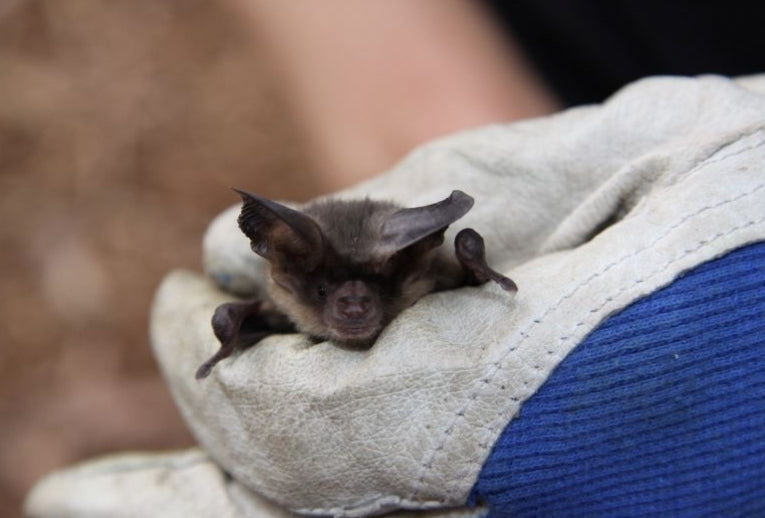Accumulation of smells can attract a lot of attention of the wrong kind, as we all know. For tree-roosting bats, the confined spaces they inhabit need to be swapped frequently, so that they can avoid detection by predators. This is the idea that some Australian researchers tested in these observations in Sydney.
Although the removal to alternative roosts would reduce the thermoregulation advantage of staying put, it would also help reduce the parasitic load and maintain any social relationships between the bats' colonies. During the research, various predators nosed out some of the 90 artificial "roosts" with bat faeces present and significantly less of those without faeces.
Sydney Harbour National Park holds several insectivorous bat species, such as the lesser long-eared bat above or Gould's wattled bat that roost in some buildings, caves and the hollows of tree stumps. The faeces was collected from locally trapped bats (see the photograph) and distributed around 30 solitary "roosts," 30 group "roosts," and omitted from 30 control "roosts."
Dr. Caragh Threlfall, Bradley Law and Peter B. Banks of the Universities of New South Wales and Sydney, as well as the Forest Science Centre (in Beecroft) set up the roosts and wrote a paper they publish now in Biology Letters.
We must thank them, especially Dr. Threlfall for supplying the photographs. The visitors to the artificial roosts included, in order of visit frequency, ringtail possums, Pseudocharus peregrinus, black rats, Rattus rattus, and pied currawongs - birds related to the Australian magpie, called Strepera graculina. Snakes would also be expected to predate these bats, but were not found in the observations.
The results indicated that the smallest amount of bat guano or faeces would result in increased predatory risk. The faeces of a single bat increased predator visits by 30% after just 1 day (after 2 days, 44%). The increase in visits therefore mainly took place on the first day.
Although bats choose the least risky roosts, predation at roosts has reduced bat populations drastically. Roosting with other bats reduced predation risk, because more guano surprisingly reduced the predators' visits. Infra-red cameras and indirect roost entrance disturbance were used to detect predators. The result was a surprising number of possums and this black rat found the smell quite inviting!

This rat entering the bucket gives an idea of the "roost" setup which was entirely artificial. No bats included; Credit: © Shutterstock










